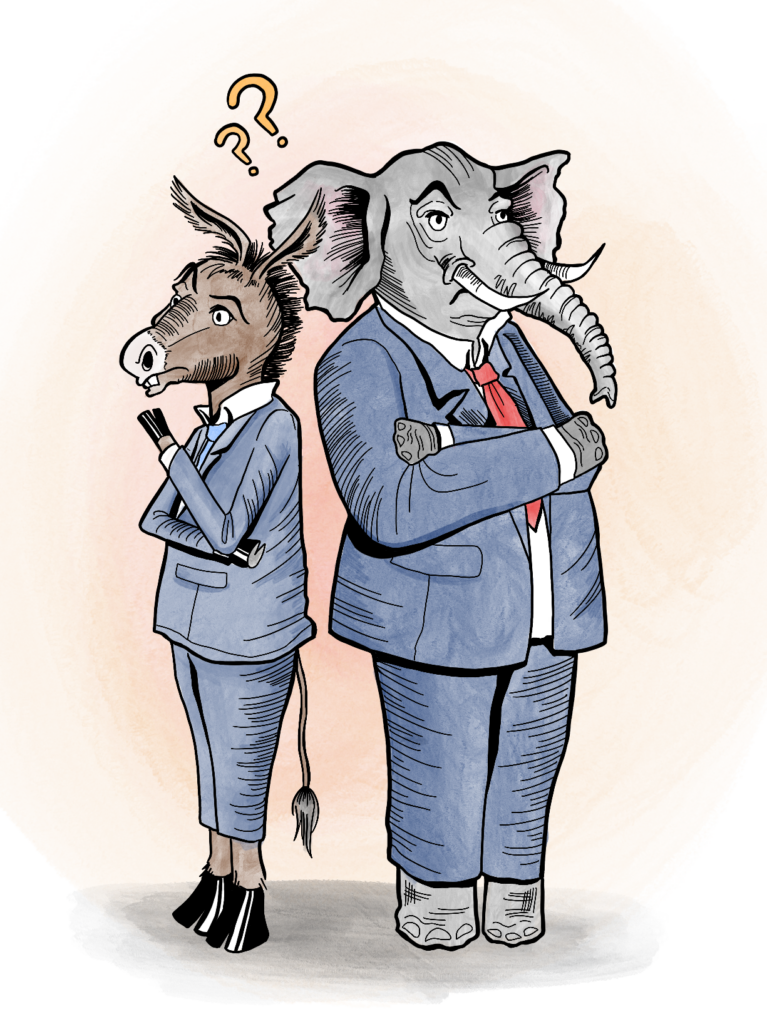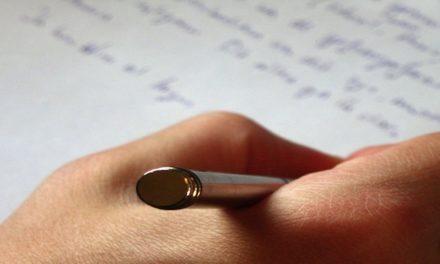
Ivana Chen/Contributing Illustrator
Since I was 15, I’ve been called an activist. I’ve organized, I’ve worked for nonprofits, I’ve made it my social media. I am tired.
Theoretically, to be American is to have faith in the political organization of a nation that is the stronghold of democracy and freedom. To be American is to be led by the so-called “leader of the free world,” the election for which is already underway. To be American is to engage in activism for beliefs that you feel are integral to the pursuits that this country is supposed to stand for.
Political activism has been undeniably institutionalized as respectable and widely available, leading to the performatism that characterized much of my feed in 2020 – think black squares and reposted infographics. So much of the blame for performative activism is placed on the individual, for not engaging in meaningful work, like protesting in the streets. I have been the individual that has been both a performative activist and criticized others for mirroring my activism.
In reflecting, I have learned that political activism itself is the facade. American democracy is propagandized to teach that our individualism as citizens holds power, and yet mainstream political activism teaches us to use our power to support political institutions. Ahead of the 2024 presidential election, if you have been struggling with being politically-engaged or re-examining your identity as an activist, I want you to contemplate the power a period of indifference could have.
My 15-year-old self would be shocked if she could read this admission and encouragement of political indifference on the internet.
I recognize my privilege in asking you to consider a period of indifference, a term I have always known as a form of easy, ignorant bliss most Americans cannot afford. But I honestly believe that the majority of people I know — from college students to senior citizens — have adopted a lack of engagement without thinking about how to reconcile their activism because that thought is simply exhausting.
Let me be clear: adopting a mindset of political indifference should not come at the cost of an educated vote. It should come with decentering politics as America’s foremost faith-based system for change. In doing so, you distance yourself from forced ideals of political engagement. I have chosen to adopt indifference in the manner that I protect my time and energy. In reflecting on American political identity, I have learned the critical difference between being politically educated and politically consumed.
I wouldn’t call this remediating activist burnout because this term conflates activism with exhaustion and recuperation. Adopting political indifference brought me clarity about the institution of American activism.
The idea that activism should not be exhausting stems from the divestment of our belief and patriotism in American democracy as a whole. When a cornerstone of America’s founding focused on pioneering a novel political system, it takes a revolution of faith to understand that even our founding was institutionalized. “We the People” was penned by an oligarchy of slave-owning, white, self-appointed men; the ruse of individual power in American democracy was created as a form of maintaining control.
To invest in a corrupt system, whether it be through fiscal donations or emotional labor, is important until it reaches the level of being harmful.
We, Republicans and Democrats, voters young and old, continuously give ourselves away as extensions of a candidate, a party or a cause. Democracy, as an American institution, is propagandized. You see it in the political iconism of Trump supporters’ Make America Great Again attire alongside the tokenism of politicians who stray from the main demographic of white, rich men. We are conditioned as American voters to expend our patriotism through personal investment in political institutions and figures because they represent our beliefs and morals in a tangible form of power. It is my perspective that if we were to implement the practice of indifference, little of the output would change in exchange for greater personal peace and collective clarity.
This is not necessarily pessimism in regards to the hopeless shambles that I perceive America’s political institutions to be; rather, it is indifference built by the fact-based idea that these institutions exploit innocent ideals of democracy, hope and change. The majority of political institutions rarely bend to collective blood, sweat and tears, no matter how useful such expenditures are in making us voters feel important and fulfilled.
Take the presidential election of 2020. It was emotionally and physically exhausting. I remember my anxiety feeling like the only productive way to engage in that moment. Now I realize that the feeling of fulfillment I took away when Biden won was a falsified product of propagandized democracy. Like so many of my peers, I dealt with self-imposed anxiety and exhaustion because fundamentally it feels good to have faith in America. But President Biden, in terms of both his policies and the fact that he received the Democratic Party’s presidential nomination, is just a product of political institutionalism. And I, two years too young to vote and overwhelmed by the propensity to over-consume political media, was a victim of the left’s propaganda.
I want to make it clear that there is no social gravitas for grassroots movements without these innocent ideals, but the energy put into political institutions can be divested and moved toward said movements. I want to preserve my own hope when it comes to activism strengthened by and for the people, the preservation of which is wholly dependent on the sacrifice of energy for events and politicians that are out of my reach. Organizers, mutual aid and historical acts of protest have made it so that hope for American democracy persists. Divesting from democracy only works if it results in investing in the people and work that have and continue to make it possible.
I have reflected on my indifference and believe that presently, I would appear to some as still partially indifferent. I am not as involved as I would expect myself to be a year ago, and I have gained so much more because of it. Activism used to be a commodified asset of mine, and now I see the same spurts of passion I used to have steadily sustained and evolving in my academic papers, relaxed conversations and freely-chosen outlets of knowledge.
Being a good American citizen and educated voter should not come at the cost of meaningless labor put toward institutions and politicians who run on the idea that democracy and change are solely driven by people. If this makes me a bad patriot, so be it. I’ve always thought it just a bit narcissistic to push democracy and liberty as a moral when it has been fought for by groups historically marginalized by those representing the country’s politics.
Maybe it’s just me, but democracy in its truest form grants the liberation to revolutionize. This is my individual revolution; I think my 15-year-old self would be proud.
Saanvi Nayar (26C) is from Marlboro, NJ.
Saanvi Nayar (she/her) (26C) is from Marlboro, New Jersey and is interested in the fields of public health, sociology and women's studies. She is a member of the Editorial Board and outside of the Wheel, co-hosts a podcast @dostanapod, advocates with URGE at Emory and obsessively keeps up with The New York Time's "Modern Love" column.





